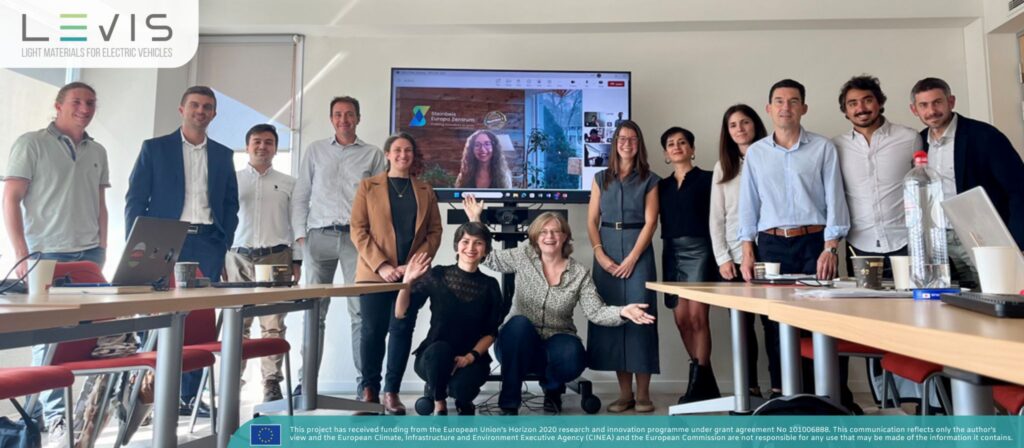
LEVIS project ends: Lightweight solutions to revolutionize Electric Vehicles
The European LEVIS project has just ended with promising results. Funded by the European Union and involving 13 partners in 7 countries, this project aimed to develop lightweight components for electric vehicles (EVs).
These solutions aim to offset the weight of EV batteries, while improving their energy efficiency and reducing their environmental impact.
CANOE : A key role in the development of innovative materials
As part of LEVIS, CANOE played a major role by leading the working group dedicated to the design and development of materials.
The objective of this working group was to develop innovative materials and semi-finished products to support the project’s ambitions in terms of sustainability, weight reduction, performance, and cost-effectiveness.
Emblematic achievements of the LEVIS team include:
- The development of a debondable-on-demand structural adhesive, perfectly suited to composite-to-metal bonding.
- A liquid acrylic resin, enabling the production of recyclable thermoplastic composite matrices suitable for overmolding metal parts.
- Carbon fiber reinforced composite semi-finished products, offering excellent specific mechanical performance for lightweight applications in the automotive sector.
These materials have been integrated into LEVIS demonstrators, proving their technical feasibility and potential for large-scale application in the automotive industry.
Concrete solutions for a greener future
The project relied on three key demonstrators:
- A suspension arm
- A battery box
- A car crossmember
These components highlight the use of multi-material composite materials, combining carbon fiber and metals, to offer lightweight and robust solutions. In addition, smart sensors have been integrated to ensure continuous monitoring of the condition of the parts, thus increasing the safety and durability of the vehicles.
A sustainable approach at the heart of the project
LEVIS is fully committed to eco-design and the circular economy. By using recyclable materials and a design allowing easier dismantling and recycling, the project ensures that components can be reused efficiently, reducing the overall environmental footprint of the vehicles.
Impressive results
The results obtained at the end of the project are impressive:
- A 32% average weight reduction compared to conventional components.
- Substantial cost savings.
- A recycling rate of up to 85% for multi-material components.
- A 23% reduction in global warming potential at the component level.
- A potential replication of these solutions for more than 60% of chassis and body components of electric vehicles.
A promising future for sustainable mobility
The LEVIS project has demonstrated that lightweight and durable components can transform the electric vehicle industry, increasing their efficiency and reducing their environmental impact. The success of this project invites stakeholders in the automotive industry to adopt these innovations and play an active role in the transition to greener and more sustainable mobility.
With these results in hand, CANOE and its partners are convinced that the innovations developed within the framework of LEVIS will pave the way for a new generation of electric vehicles that are lighter, more efficient and more environmentally friendly.
